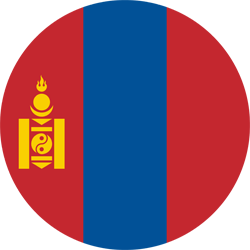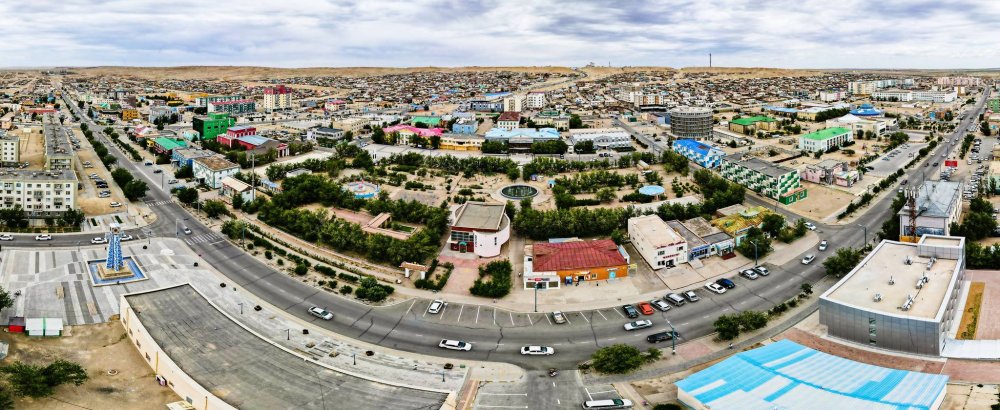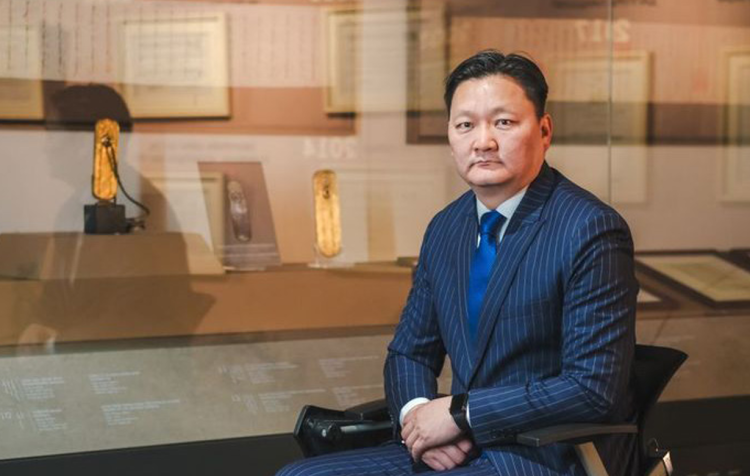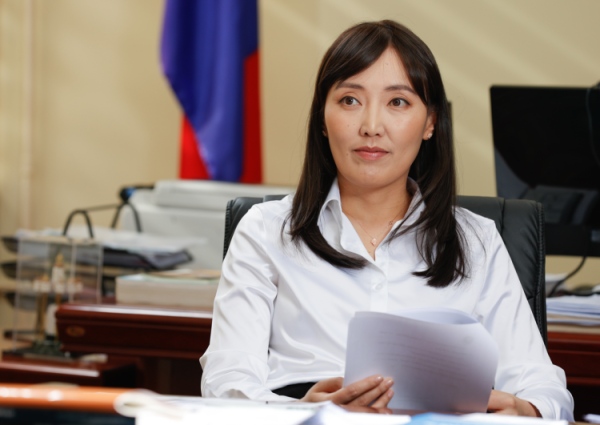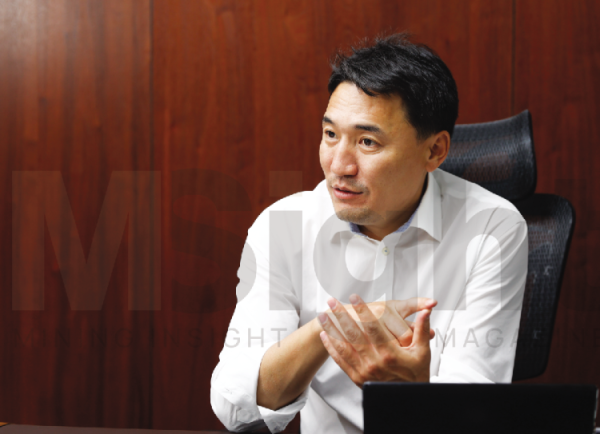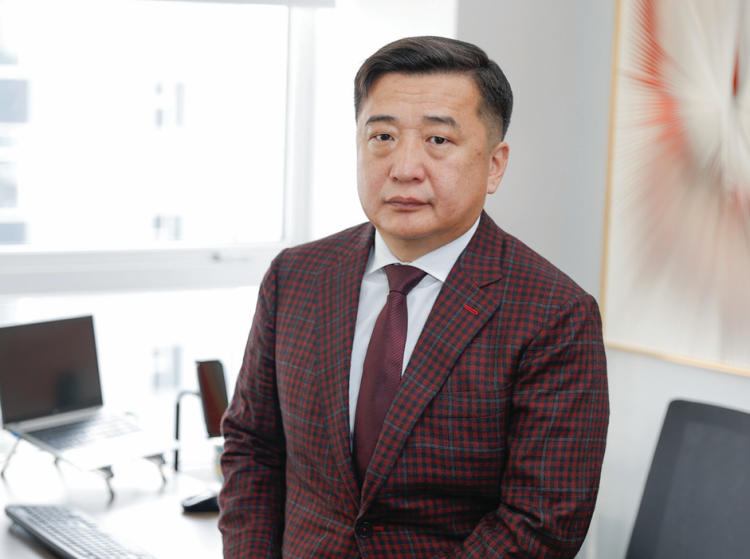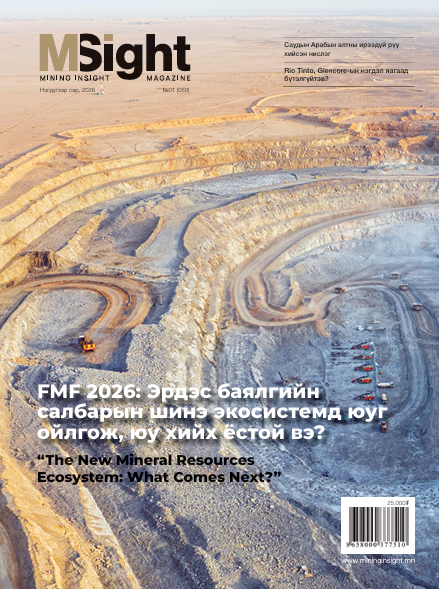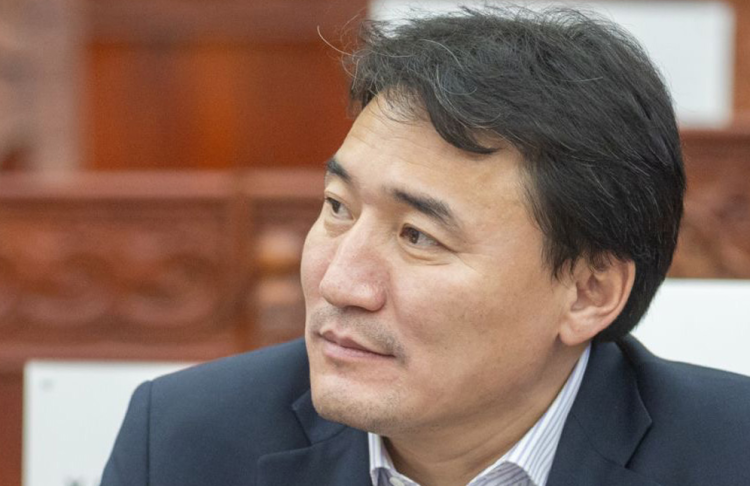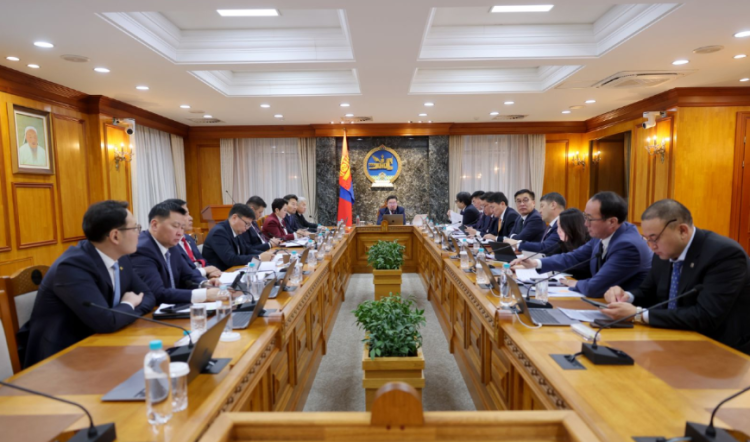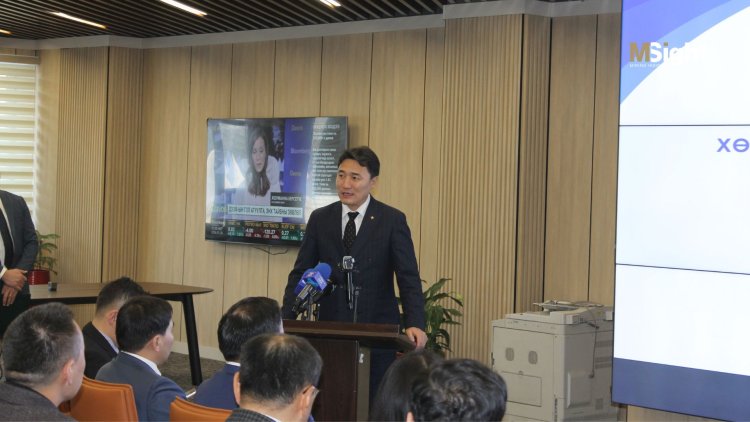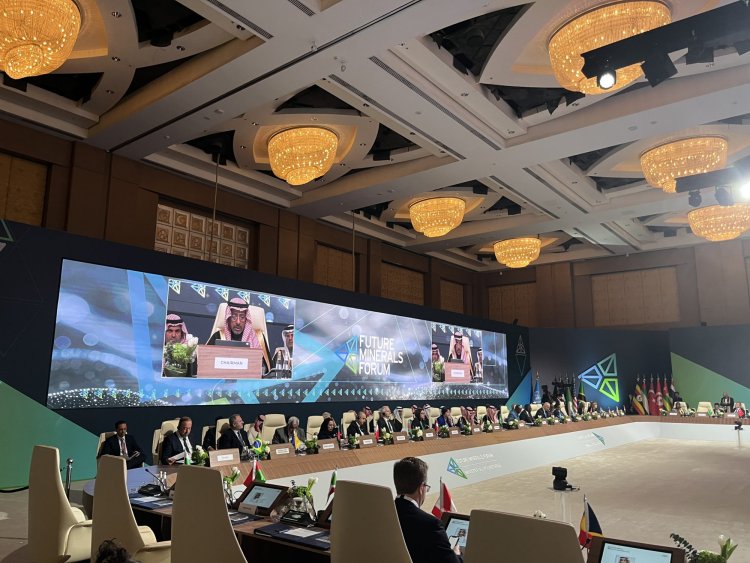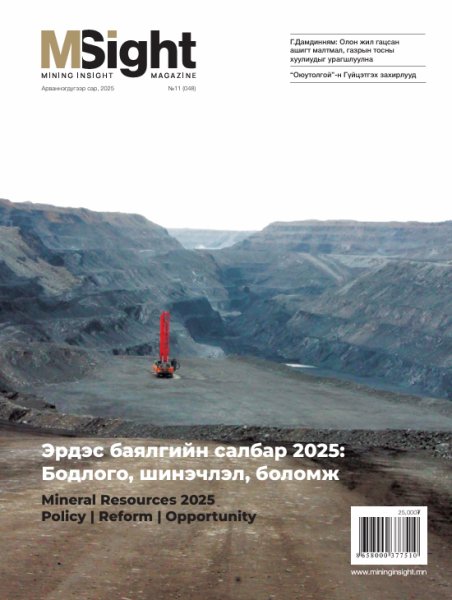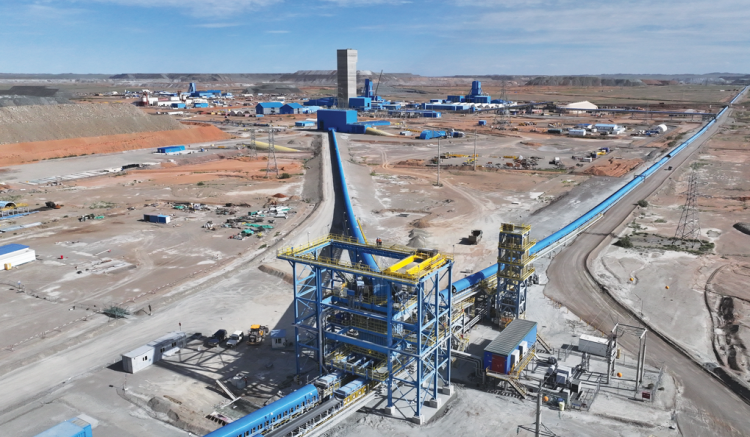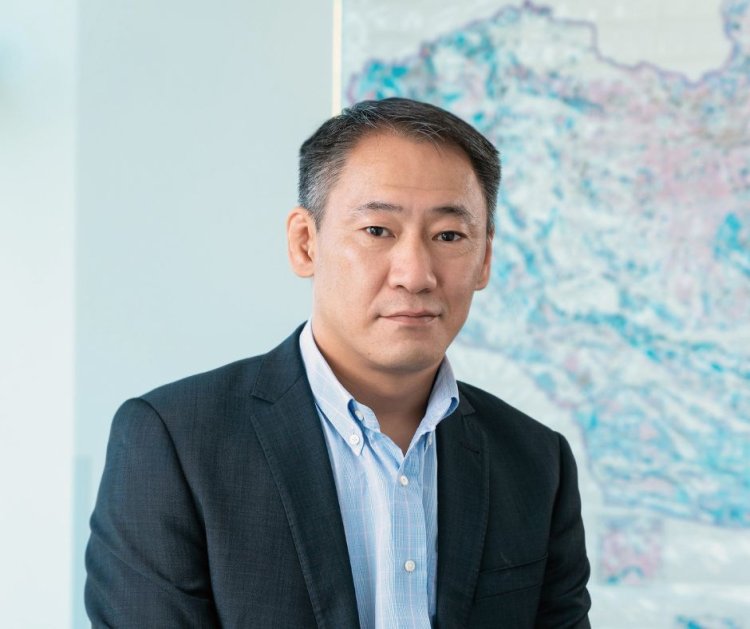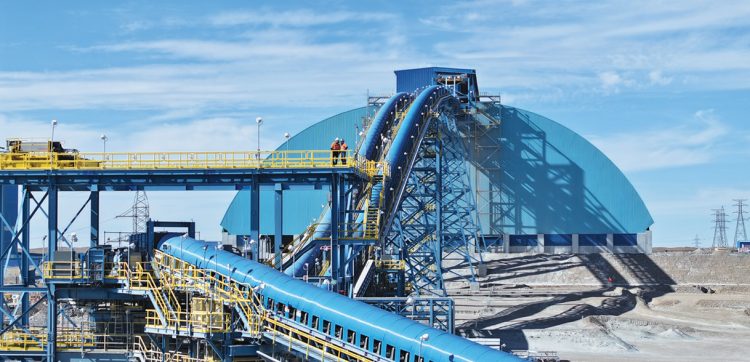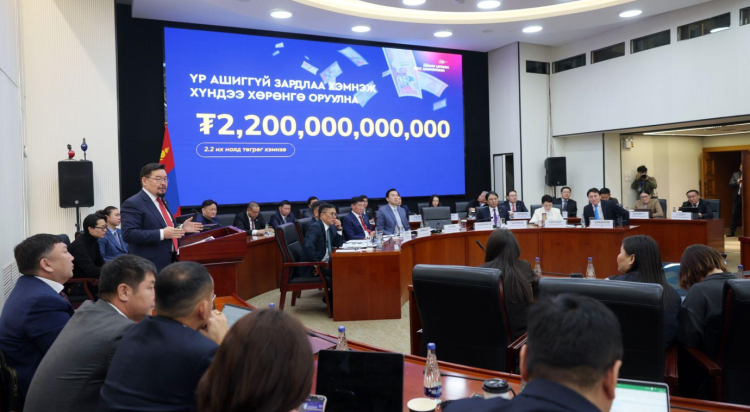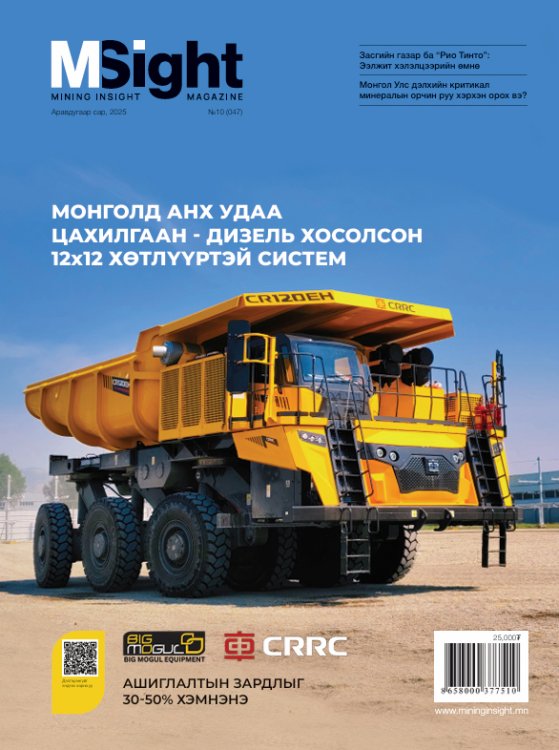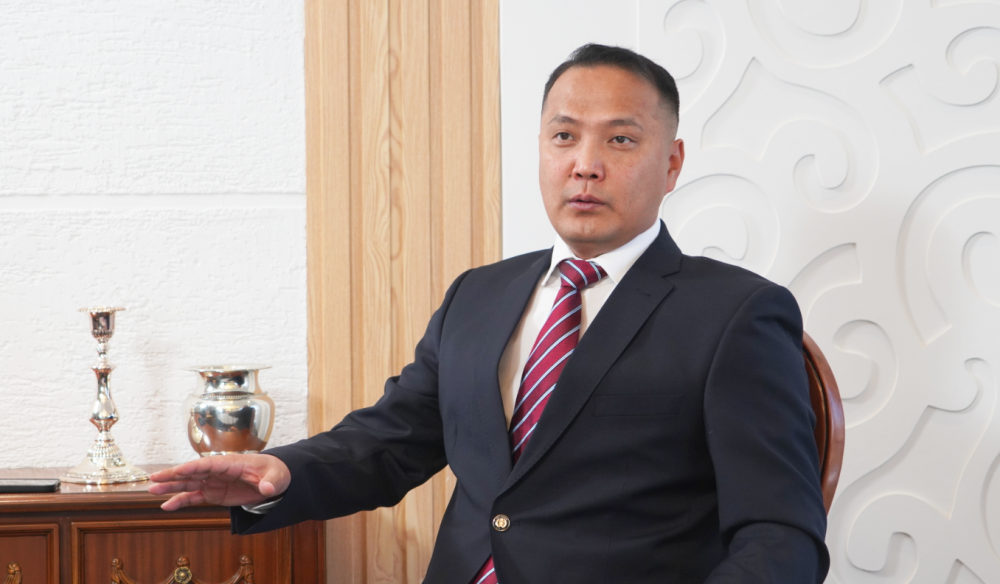 In recent years, the issue of local mining relations has become a major problem. It has become common for companies with mining lilicenses to go to local communities and face opposition from the people. Therefore, Mining Insight Odjargal.E spoke with the Batjargal.O Governor of Dornogovi province to convey the views of the local people at a time when the discussions on the revisions to the Minerals Law are in full swing.
In recent years, the issue of local mining relations has become a major problem. It has become common for companies with mining lilicenses to go to local communities and face opposition from the people. Therefore, Mining Insight Odjargal.E spoke with the Batjargal.O Governor of Dornogovi province to convey the views of the local people at a time when the discussions on the revisions to the Minerals Law are in full swing.How does the mining industry contribute to the economy of the province in terms of its position and role?
Dornogovi province has been the mining hub of Mongolia since the socialist era, with significant infrastructure and railways established to support it. The establishment of the Erdenet Mining Corporation led to the creation of "Mongolrostsvetmet" fluorspar concentration plants in Urgun and Dalanjargalan soums, transporting their products via railroad. Additionally, the Zuunbayan oil refinery was also established in the region. In recent years, there has been a rise in the development of major infrastructure related to mining, including the Zuunbayan-Tavantolgoi and Zuunbayan-Khangi railways, the International Transport and Logistics Center, and the expansion and modernization of Zamyn-Uud and Khangi ports. There is also a Zamyn-Uud economic free trade zone and the country's largest solar and wind farms located in the area, with significant domestic investment driving further growth. The government has also announced plans for the Sainshand-Baruun-UrtKhuut-Choibalsan-Ereentsav railway, which will pass through Dornogovi province.
Dornogovi Province boasts a diverse range of mineral resources and is home to a large number of mining companies due to its well-connected infrastructure to foreign markets. As a result, there is a strong focus on engaging these companies in social responsibility efforts that support local development and socioeconomic growth, with significant investments being made to facilitate this.
The population of the province is growing in tandem with the expanding infrastructure and industries, and there is a belief that Dornogovi has the potential to become the third-largest industrial region in the country, following Erdenet and Darkhan. Dornogovi Province has achieved impressive success in recent years, earning the distinction of ranking first in the "Provincial Competitiveness Index" for the past two consecutive years, and second out of 21 provinces overall. Despite this, many citizens have limited knowledge about the mining industry, which plays a significant role in the region's economy. It is rare to find a family in soum without at least one member working for the railway, given its importance to the area's transportation infrastructure. Similarly, in mining areas, it is common for every family to have at least one member working in the mines.
How are policies, objectives, and activities related to mining being incorporated into the provincial development program of the province, and what measures are being taken to ensure their effective implementation?
As the leading economy in Dornogovi, the mining sector plays a crucial role in shaping the province's budget. In light of this, numerous policies and objectives have been established to guide the development of the mining industry. These efforts prioritize responsible mining practices, as well as the development of concentration and processing industries that build upon mining operations.
Mongolia's concentration and processing industries are primarily focused on a few key minerals, such as coal, fluorspar, iron ore, and copper. To support these industries, plans have been put in place to establish coal washing and coking plants in Dornogovi, as well as to develop the coal and chemical sectors more broadly.
To maximize the value generated from these processes, small by-product industries are being encouraged to utilize excess energy and heat produced during coke and iron processing. For instance, asphalt could be produced from these byproducts for road construction. Additionally, two large national cement factories require a variety of minerals as raw materials, creating additional opportunities for the mining sector in Dornogovi. The provincial government of Dornogovi is committed to supporting exploration and exploitation activities aimed at enriching, processing, and producing final mineral products. To this end, the government intends to fund exploration efforts that will help determine the reserves of mineral products required for iron production. The government is also exploring the possibility of establishing numerous small-scale industries in addition to the oil refinery. Furthermore, foreign investment has been secured for the establishment of the first uranium plant in Dornogovi, and the Dongshen oilfield has been a steady source of oil production. To support the intensification of oil exploration efforts, the government has implemented a local policy over the last 2-3 years. The provincial government of Dornogovi is taking a cautious approach towards small-scale mines that are not significant for the country or local communities. These mines often lack the financial resources to adequately address environmental concerns, such as those identified through Environmental Impact Assessments and remediation efforts. As a result, these small-scale mines may cause more harm than good, and could potentially pose an obstacle to larger mining projects that prioritize responsible and sustainable mining practices.
The local government of Dornogovi is prioritizing infrastructure development to better connect mining industries. The government has declared Dornogovi province as a heavy industry zone and plans to build an industrial complex in Altanshiree soum, designated as a special-purpose industrial technology park.
Additionally, the Tsagaansuvarga project is located on the southwest side, where there are four or five residual coal deposits in the same direction. Based on this, another industrial technology park will be established. These efforts will facilitate the development of industrial technology parks in both regions and support the growth of the mining sector in Dornogovi.
How is the community working with geological and mining companies?
It has become a "tradition" in our country for citizens to protest and for companies to solve local "trivial" problems, but then there is no further cooperation and both parties eventually forget about the issue. This results in situations where a citizen, team leader, or provincial governor demands money from a company, which can lead to illegal activities being conducted and covered up in return. We need to establish a more transparent and sustainable system in which local issues are addressed through proper channels, rather than resorting to illegal or unethical means. Mining companies are interested in investing in the settlement areas where they operate, and the residents of these areas are also willing to purchase these investments. However, it is important to avoid any corruption or conflict of interest in these transactions. To prevent such conflicts, a decision has been made and instructions have been given to government employees, agencies, and organizations, forbidding them to receive donations or spend them without the permission of the governor of the province or soums within the Dornogovi province. The Dornogovi province is working to establish a new model of cooperation with mining companies. In 2016, the "Responsible Mining" initiative was launched to increase the mining companies' social responsibility, improving their operational efficiency without harming the environment, and ensuring that the residents benefit from their activities.
That year, the mining companies contributed MNT 1.9 billion to the local budget, which has increased to MNT 10 billion.
The initiative also involves signing agreements with mining companies that have special permits to operate in the province, registering their activities, paying personal income tax, corporate tax, property tax, and land use fees, and ensuring that the mining equipment is registered under the local government's jurisdiction. Additionally, the initiative aims to ensure that at least 60% of the workforce employed in mining operations are locals and that goods, services, and consumer goods are purchased from local suppliers. Major national companies such as "MAK Euro Cement" and "Moncement" are contributing taxes to the local budget by operating in Dornogovi province. After the first consultation with the local community, the "Dornogovi Great Development Fund" was established to ensure the participation of all stakeholders. The companies are responsible for managing and accumulating financing for the fund, reviewing proposals from the fund's board of directors, and making investment decisions. Since its creation in November 2016, the fund has invested in various sectors throughout the province, including healthcare, education, infrastructure, and construction. Kindergartens and sports centers have been constructed in soums, and housing has been provided to vulnerable groups. Neither the provincial nor the soum governors have the authority to sign or dispose of the fund's finances. Dornogovi province follows the principle of collaborating with mining companies, which has been successful in the past. However, due to the COVID-19 pandemic, this collaboration has been disrupted in recent years. During the two years of curfew, there was no cooperation with mining companies. As a result of the pandemic, the profits of companies deteriorated, operations were interrupted, and exports decreased. Despite these challenges, the province was as accommodating as possible. Currently, the activities of the companies are stabilizing, and as a result, the "Dornogovi Great Development Fund" will resume its operations starting this year.
What issues are causing conflicts in the relationship between the local communities and mining?
The local communities and mining industry are facing various issues such as air pollution, degradation of vegetation and pastureland, and acute groundwater problems in the Gobi region. Another issue is the lack of rehabilitation efforts after exploration and exploitation. Mineral licenses often change hands, leaving reclamation efforts without an owner. To address these issues, it is important to find ways to combine pastoralism, agriculture, and mining practices. While mining companies submit their Environmental Management Plan and Environmental Impact Assessment reports to the Citizens' Representatives Meeting each year, more comprehensive solutions are needed to tackle these challenges.
The reputation of the mining industry is greatly damaged by unprofessional companies, which in turn causes conflicts between the companies and the citizens. It is crucial to engage responsible companies that have developed a professional and comprehensive technical and economic framework and can implement it thoroughly.
There are numerous instances where a small deposit is explored with little effort and, subsequently, becomes unfeasible to extract and the operations cease. After identifying a deposit, companies set up drills, explore the area, and then sell their special license, leaving citizens with no benefits. There is a growing caution that sees the area remain free from mining activities when the operations cease.
What is the participation of local people in the activities of geological and mining companies?
Realistic and effective communication strategies between companies and citizens are crucial. Citizens need to understand how to engage with mining companies properly. For instance, it may not be feasible for the company to buy products from every local citizen, and even the government may struggle to manage such issues. Therefore, Dornogovi province is initiating the establishment of specialized cooperatives for the supply of meat, milk, work clothes, and tools. Mining companies will be able to purchase goods from nonindividual cooperatives, which will be set up in all soums and implemented province-wide. This scheme will particularly support the development of small and medium-sized enterprises, which can then work in tandem with larger corporations. Cooperatives will be strengthened by linking them with the activities of companies. This approach will establish genuine supply chain relationships between companies and citizens and promote clearer cooperation.
What is the general public opinion of Dornogovi citizens towards mining?
In recent years, there has been a growing trend among citizens of Dornogovi who are against mining activities. Many people now view everyone involved in mining as "thieves" due to the irresponsible actions of certain mining companies. Furthermore, people have realized that they should receive dividends from other mining companies based on the standard of holding a certain percentage of state-owned companies. Citizens often lack an understanding that taxes and fees collected from private sector companies are used to support salaries, pensions, and welfare through the tax system. Many are also unaware that the Local Development Fund of each province is funded by taxes and payments from mining companies. This lack of information can lead to misunderstandings and resentment toward the mining industry. In our province, it is common for large-scale protests and blackmail to be used to block any project. The local people prioritize tangible benefits to their livelihoods as the most important factor.
How do you see potential solutions to further improve the relationship between mining and communities?
Companies need to provide accurate information on the projects being implemented in the local area. Starting from the Technical and Economic Framework, it is important to have a team with a certain number of professionals and technical equipment, as well as to provide comprehensive information about the services, products, and sales to be obtained from the local area through the team's consultation at all levels. On the other hand, the funds that go to the Local Development Fund from the mineral resource royalties paid by mining companies should be used for essential development projects. Additionally, we aim to enhance the authority of the local government and the People's Representatives Meeting. We propose utilizing fees to mitigate the adverse effects of pollution caused by mining debris and road traffic dust and allocate them for local restoration efforts. For people to accept mining, mining companies need to act in an appropriate, respectful, and complementary manner. In Dornogovi province, we are currently placing more emphasis on improving our infrastructure to minimize the negative impact on the environment.
Thank you for the interview.
Mining Insight Magazine, March 2023
